Illva Saronno CEO open to acquisitions
By Miona MadsenIllva Saronno CEO Marco Ferrari is no stranger to driving successful spirits companies, with 29 years of experience in the industry. In June, SB travelled to Rome for Disaronno’s 500th anniversary to discuss the group’s long-term vision and why portfolio expansion is a key priority.
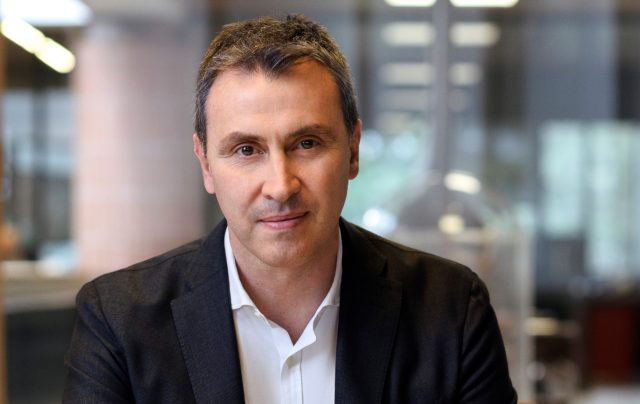
Italian-born Ferrari has worked with some of the biggest names in the spirits industry, including Bacardi, Fratelli Branca, and Stoli Group. Before becoming the CEO of Illva Saronno — the owner of brands such as Disaronno, Tia Maria, Isolabella Limoncello, The Busker Irish whiskey, Engine Gin, and Sagamore Spirits — Ferrari held the same position at Gruppo Montenegro from 2014 to 2023.
In October 2023, Ferrari took over at Illva Saronno, succeeding Aldino Marzorati, who remained to assist with the company’s traditions. For the past 11 months, he has led the company into a new era. According to Ferrari, Illva Saronno is strong both financially and in value, both of which are crucial for a successful business.
“It’s been a very exciting, intense, yet happy journey so far. The company has a strong family behind it, with a desire to invest in the brands and the people. These things are essential in building a successful company and key ingredients that get me excited,” says Ferrari.
“What we have, compared to some of my previous experiences, is a very strong international mindset, with more than 90% of our spirits revenues generated outside of Italy. I think many entrepreneurs share similar traits: they are passionate and committed to their business. There is a common cultural element in terms of attention to quality, with no compromise with certain things.”
With a background in sales and marketing, along with extensive experience in innovation, Ferrari has pinpointed key elements of innovation that can add value to the company’s growth. He also emphasises that concentrating on fewer tasks and executing them well will ultimately benefit the brands.
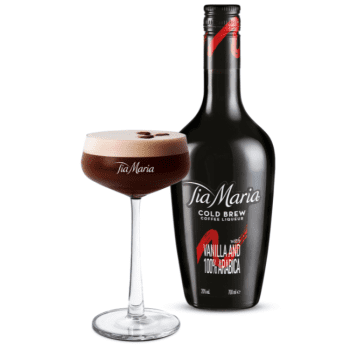
“I care about long-term success for the brands,” he explains. “Sometimes we all get excited about lots of projects, but when there are too many, we start to lose focus.
“On the other side, it’s about agility. As we grow – sometimes at a rapid pace – especially when expanding internationally and building teams, we have to navigate some challenges. We currently have five subsidiaries located in the US, the UK, the Netherlands, Belgium, and Italy. With this level of growth, maintaining agility can become difficult, yet it remains a crucial element for companies of our size. Even though it is an opportunity for us, it also creates an obligation to compete against larger companies that have bigger muscles.”
To ensure the best distribution route to consumers in countries where Illva Saronno does not have subsidiaries, the company collaborates with partners who share its values. Ferrari refers to this alignment as “an ideal cultural fit”.
“In our partner markets and with third-party distributors, we prioritise finding an ideal cultural fit,” he says. “Ultimately, it’s about building a relationship, and like any relationship, a lack of cultural alignment will likely lead to a short partnership. Therefore, we focus on cultural fit first, followed by the necessary capabilities and the ability to promote our brands effectively.”
“We have been focusing more on the on-premise channel, which historically has not been a strength of our company. We were stronger in the off-premise. However, over the last year, we’ve made a significant effort to build stronger teams in the on-premise, and this is true for all our subsidiaries.”
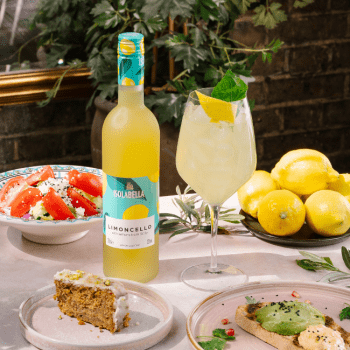
Optimistic outlook
The spirits industry is currently undergoing a transformation that presents challenges for businesses. Ferrari emphasised the importance of understanding the company’s market to satisfy demanding customer expectations. He noted that 2024 marked the first decline in spirits consumption in the US in 26 years.
“In one of our biggest markets, the US, the spirits consumption decline for the first time in 26 years means that there is an entire generation of managers, distributors, retailers, and bartenders who have never seen the tide; they’ve never worked against it. So, it’s an interesting environment. I believe this experience will enhance the quality of management within the spirits industry,” Ferrari theorises.
“I believe this situation is teaching us several important lessons. One lesson is the euphoria we experienced after Covid-19, which may have been somewhat excessive. We got carried away in our excitement,” he explains.
“However, I must strongly disagree with the pessimism I often hear from colleagues and read in industry publications. If we look closely at actual consumption levels in every country, we see they are significantly higher than they were in 2019. So, while we can set aside the euphoria of those couple of years, it’s clear that the trend line is still positive today.”
And for Illva Saronno brands, this is true. According to CGA by NIQ data, the company was the only top 20 spirits supplier in the UK that experienced growth in the on-trade. Notably, the company’s flagship liqueur, Disaronno, grew globally at a rate of 8% year on year and in Italy by double digits.
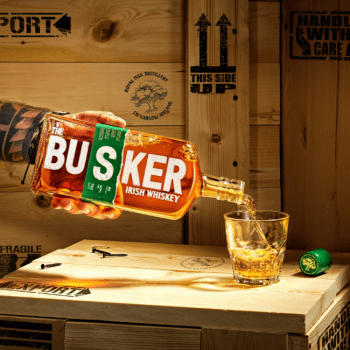
Additionally, Engine Gin saw impressive growth of 45%, while Isolabella Limoncello experienced a significant increase of 57%. The growth for Isolabella was driven by rising consumer interest in the UK, the Netherlands, and Germany. For the company’s Tia Maria coffee liqueur, the same period presented challenges, resulting in a sales decline of 8% globally.
In Japan, The Busker Irish Whiskey is ranked number one in its category, according to Ferrari. With 150,000 cases sold in Japan, it is currently the fifth-largest Irish whiskey brand in the country.
Ferrari continued: “Generally, we are experiencing strong performance and growth across our portfolio. Over the past 29 years, I have heard claims about the industry dying three times, yet it has always emerged stronger than before. I believe we are currently in a similar phase. It is crucial for companies like ours not to overreact when things appear less exciting than they once were. Despite this, we continue to grow.”
Room for expansion
According to Ferrari, Illva Saronno is actively pursuing its goal of expanding its brand portfolio, which aligns with its growth strategy. In the last few years, the company has made significant acquisitions, including a majority stake in American whiskey maker Sagamore Spirit in 2023 and the purchase of Italian brand Engine Gin, which was finalised last year.
“To build an effective team, especially a strong sales force along with a well-structured sales and marketing team, you need a diverse portfolio of brands. These two aspects are somewhat interconnected. As our priority, we focused on consolidation and do not want to overlook our core brands, Disaronno and Tia Maria,” he explains.
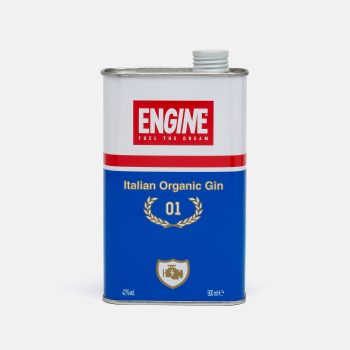
“At the moment, our limoncello is obviously a great priority. The brand went from being a tactical part of our portfolio to actually starting to grow. We rationalise our strategy in our portfolio with two global brands, Tia Maria and Disaronno, as well as some regional priorities. Limoncello has become a regional priority for our European markets, along with Engine Gin.”
Open to acquisitions
However, Ferrari said the group is open to acquisitions to fill gaps in its portfolio. Illva Saronno’s portfolio is yet to include a Tequila, one of the only spirits categories in growth currently, but Ferrari did not disclose the group’s areas of interest.
He adds: “We are also keeping our eyes open for acquisitions in new categories, since expanding the portfolio remains a priority for us. We know what we want, and we want to make decisions on two key factors: focus and execution. There are gaps in our portfolio that we believe would be very synergistic. We are not just interested in any brands, but rather the ones that resonate with consumers.”
He also noted that future acquisitions should play a key role in the company’s two largest markets, the US and the UK, which together account for nearly 50% of its business. While the company aims to expand in these key markets, it is also looking to explore new markets.
Ferrari also addressed the topic of premiumisation in the spirits market, sharing insights into the company’s objectives: “I believe that premiumisation is still relevant, but it needs to be approached with reason. Consumers seem to be growing weary of overpaying. In specific categories, like white spirits and ultra-premium whisky, premiumisation trends are likely to persist for a long time. However, consumers of white spirits are starting to seek more reasonable pricing.
“This situation puts us in a very strong position because we consider what we call ‘affordable premium’ to be a key component of our strategy. I believe this is the current trend, and it will continue. Ultimately, taste is the most crucial aspect because people want to enjoy beverages that taste good,” he concludes.
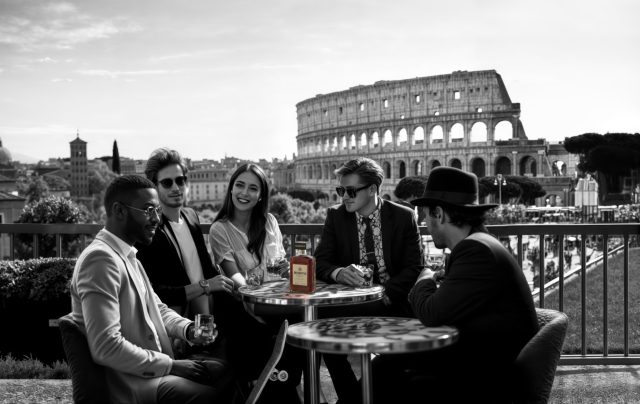
Protecting legacy
This year marked a significant milestone for Disaronno as it celebrated its 500th anniversary. In June, around 260 people from more than 40 countries travelled to Rome to commemorate the occasion in a festive manner.
Disaronno was established in 1525 during the Italian Renaissance by Giovanni Reina, who rediscovered a 17th-century recipe. This recipe was passed down through generations and eventually came into the hands of Augusto Reina, the last family chairman and CEO.
In the 1990s, Augusto made the strategic decision to invest in the brand and expand its presence in the US and the UK, aiming to establish Disaronno as the most iconic Italian liqueur. According to Ferrari, this vision of not being satisfied with sales in Italy alone but instead wanting to conquer the global market was crucial.
“Another significant milestone is the introduction of the iconic square bottle in the 1940s,” Ferrari adds. “This design eventually evolved into the current bottle, created by Murano glassmakers in 1971. Both historical and recent moments have significantly shaped the brand’s identity.”
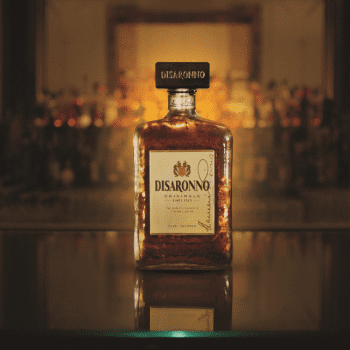
Disaronno credits its successful 500-year journey to two main factors: consistent investment in the brand’s equity – such as quality, packaging, and visual identity – and adaptability. Throughout the years, Disaronno has successfully adjusted to new consumers, cultures, and countries while encouraging drinkers to discover their ways to enjoy the liqueur.
Ferrari continues: “We are committed to protecting Disaronno through consistent investments. It is crucial for maintaining our brand equity, as well as our awareness and relevance among consumers. Additionally, we are safeguarding our brand by ensuring consistency and not overreacting to current pressures, such as rising margins and costs of goods. We are in a good place; we know who we are. This is our brand, and we are dedicated to quality. We will not compromise on these essential elements.
“Of course, we can explore options like creating lighter bottles for sustainability purposes rather than solely for cost savings. That is something everyone can support, and it represents a positive step forward. Ultimately, our priority is to protect the quality of Disaronno for the long term. That is our primary focus. Furthermore, we have an iconic brand that we hold in high regard.”
According to Ferrari, the 500th anniversary celebration presents an excellent opportunity for the brand to engage with consumers and the on-trade. Reflecting on the next 500 years, Ferrari states: “When a legacy has endured for so long, we naturally want to see what happens next. I believe that curiosity about the future is one of our greatest sources of inspiration.”
Words of wisdom
With 29 years of experience in the spirits industry, Ferrari concluded our interview in Rome by sharing important lessons he has learned over the years: one practical and one more personal.
“The practical takeaway is the importance of execution in our industry. During interviews for marketing, sales, or strategic roles, I often pose a question: if you had to choose only one – great ideas or great execution – what would you choose? Ideally, you would have both, but I believe there is a right and wrong answer to this question,” he explains.
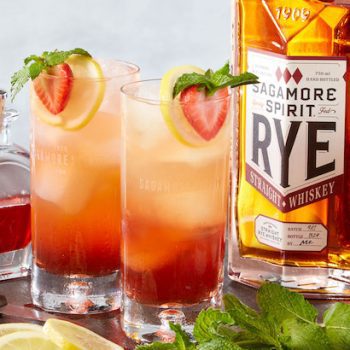
“In my experience, great ideas can fail without proper execution, whereas even mediocre ideas can succeed when executed effectively. To me, execution is crucial. It’s important not to overthink strategy; complicating matters makes it harder to communicate your vision and get others to join you on this journey enthusiastically. Focusing on doing fewer things better is key. I learned this lesson early in my career, thanks to a few great bosses who shaped my understanding.”
As for the second, more personal piece of advice, Ferrari emphasised the importance of relationships: “Our industry, while it has evolved, remains somewhat unsophisticated compared to others, where managers demonstrate a higher level of technical expertise. Building relationships and networks is fundamental; it’s not only enjoyable but vital for success.
“Throughout my career, I’ve often reached out to colleagues from the past 30 years to seek their insights, just as they frequently seek my advice. Our field relies heavily on relationships. In the on-premise space – where many small, often young entrepreneurs manage bars – it’s crucial to establish and maintain these connections.”
Ferrari concludes: “It’s important to conduct yourself well within the industry. You will encounter the same individuals repeatedly, and a negative interaction can linger, potentially leading people to avoid your brand. I’ve seen instances where brands lose support simply because of personal dislike for those behind them. Therefore, emphasising execution and nurturing strong relationships is vital for long-term success in our industry.”
Related news
Campari to offload Amaro Averna to Illva Saronno in €100m deal
